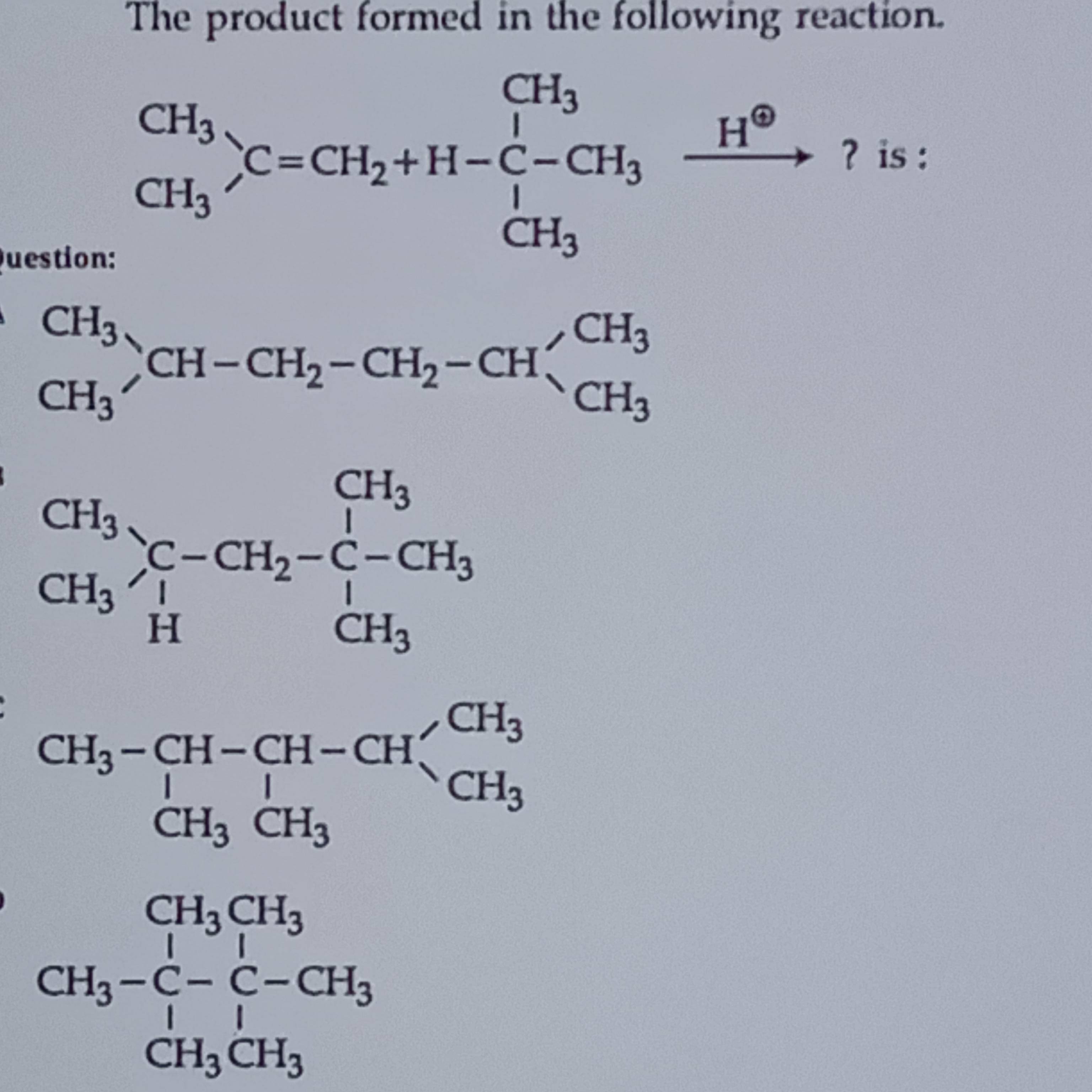This question was asked in jee mains 2022 june 25 shift 1. I have never seen such a kind of reaction before and also could not find it anywhere on internet. But I guessed that the proton will add to primary carbon of the double bond and form tert-butyl carbocation while isobutane will release proton to form isobutyl carbanion. They will then add to each other to form the product D. This is why I marked it.
However the released answer key shows that option B is correct. One possible thought that came in my mind was that bulky bases like tertbutoxide ion make Hoffman product major because they can't attack middle carbon due to steric hindrance. Same case happen here also with nucleophile. So, instead primary carbocation would form and get attacked to form that product in option B.
However I am not sure of myself. My query is not regarding this specific question but asking in general wether such kind of reactions with alkane and alkene actually happen? What is their mechanism? And most importantly how to decide wether a given base or nucleophile is bulky or not?

